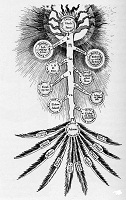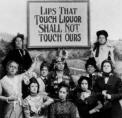By Jeff Nesmith
Cox News Service
Washington, May 25 - Defying President Bush's veto threat, the House voted Tuesday to allow more U.S.-funded research on stem cells from human embryos.
Senate supporters of an identical measure said they had enough votes to win passage, but the 238-194 House tally was well short of the 290 votes needed to override a veto.
The legislation directs the National Institutes of Health to fund research on stem cells grown from unused embryos produced for couples that received fertility treatment, provided the embryos would otherwise be discarded.
As the House was engaged in four hours of personal and emotional debate on the bill, Bush repeated his opposition, warning that it creates "new incentives for the ongoing destruction of emerging human life."
'`The children here today are reminders that every human life is a precious gift of matchless value,'' Bush said at a White House event for 21 families whose children were born from donated embryos. ``These lives are not raw material to be exploited, but gifts,'' he said.
The 21 ``snowflake'' children were brought to Washington by supporters of a competing measure to create a national registry of stem cells harvested from umbilical cord blood.
That measure was also approved Tuesday. The vote was 431-1, with Rep. Ron Paul, R-Texas, the lone dissenter.
Rep. Artur Davis, D-Ala., a co-author of the umbilical cord bill - and one of 201 co-sponsors of the embryo bill - brought 18-year-old Keone Penn of Atlanta to the Capitol to speak for it.
A transplant of umbilical cord blood had relieved him of the suffering of sickle cell anemia and saved his life, Penn said at a news conference.
``As you consider the funding options for stem cell research, please remember me,'' he said.
In August 2001, Bush restricted federal funding for research on embryonic stem cells to a few dozen lines of cells already in existence. Many researchers have said that these lines have become contaminated with material from the mouse cells on which they are grown, and new lines are needed.
The bill approved by the House would authorize use of federal funds for research on cells from existing embryos being stored by in-vitro fertilization clinics, provided:
# The embryos were created for the purpose of causing women to become pregnant but would not be used for that purpose, typically because other embryos had been successfully implanted.
# The embryos had been slated for destruction.
# The owners would voluntarily donate the embryos for research and receive no money.
Like the final vote, in which 50 Republicans joined 187 Democrats and the lone House independent in favor, Tuesday's debate scrambled the chamber's normal partisan pattern.
One of the bill's two chief authors, Rep. Michael Castle of Delaware, is a Republican, and four GOP House committee chairmen spoke and voted for it. Castle co-sponsored the bill with Rep. Diana DeGette, D-Colo.
Rep. Bart Stupak, D-Mich., helped Majority Leader Tom DeLay, R-Texas, manage the opponents' debate.
The opponents insisted the bill would mandate the use of taxpayer funds to finance the destruction of living human beings for research purposes.
Supporters said it would make it possible for embryos that would otherwise be discarded to be used for potentially life-saving medical breakthroughs.
``I have a nearly perfect pro-life voting record,'' declared Rep. Joe Barton, R-Texas, ``but today I'm going to cast my second `bad' pro-life vote in 21 years.''
Like others, Barton said the science the bill would fund offered hope for medical breakthroughs against diseases such as Alzheimer's, Parkinson's, Lou Gehrig's, cancer and juvenile diabetes.
Rep. James Oberstar, D-Minn., opposed the bill and said proponents could not assure him that the embryos were not human life.
``Let us resolve any uncertainty in favor of life,'' he said.
Physicians in the House spoke on both sides.
Rep. Phil Gingrey, R-Ga., an obstetrician-gynecologist who says he has delivered more than 5,000 babies, took issue with the argument that the federal government's ethical guidance is needed in a field increasingly being pre-empted by states and private interests.
``If the federal government is involved in a program where taxpayers' dollars are used to destroy human life, what ethical advice can they give to my state of Georgia?'' he demanded. ``I say none.''
But Rep. Jo Ann Emerson, R-Mo., who said she had authored pro-life legislation and had a 100 percent pro-life voting record, spoke for the bill.
She recalled a conversation with a ``young man in my district who lives in a wheelchair because of an auto accident.''
``He asked me to rethink my position,'' she said. ``I later wrote a note telling him I couldn't do as he asked, and I have regretted writing that note ever since.''
DeLay, in an impassioned speech closing the debate for the opponents, warned that the bill would lead to the ``dismemberment of helpless human life,'' a ``black market in stem cells'' and abuse of ``impoverished young girls for their eggs.''
Repeating an argument offered by several other opponents that every member of the House was ``once an embryo,'' Delay said:
``So was Abraham. So was Mohammed. So was Jesus of Nazareth, and Shakespeare and Beethoven and Lincoln and so were the `snowflake' babies,'' he said. ``Don't throw them away.''
House Passes Bill to Fund Embryo Stem-Cell Research
Moderator: Dictators in Training
62 posts • Page 1 of 3 • 1, 2, 3
House Passes Bill to Fund Embryo Stem-Cell Research
גם זה יעבור
Narrock wrote:Yup, I ... was just trolling.
Narrock wrote:I wikipedia'd everything first.
-

Ganzo - Dictator in Training

- Posts: 2648
- Joined: Thu Mar 18, 2004 9:05 pm
Hmm, this is a catch 22. This makes you think it limits what is used.
This makes me think there wouldn't be a conflict of interest. I do however see cause for concern, but I don't see the harm in using Embryo's already slated for the trash.
The Bill wrote:The bill approved by the House would authorize use of federal funds for research on cells from existing embryos being stored by in-vitro fertilization clinics, provided:
This makes me think there wouldn't be a conflict of interest. I do however see cause for concern, but I don't see the harm in using Embryo's already slated for the trash.
What saves a man is to take a step. Then another step.
– C. S. Lewis
– C. S. Lewis
-

Lyion - Admin Abuse Squad

- Posts: 14376
- Joined: Wed Mar 10, 2004 1:42 pm
- Location: Ohio
I still fail to see why this is needed. Research is not banned...just not federally funded. Several states already fund research on their own.
Inside each person lives two wolves. One is loyal, kind, respectful, humble and open to the mystery of life. The other is greedy, jealous, hateful, afraid and blind to the wonders of life. They are in battle for your spirit. The one who wins is the one you feed.
-

Martrae - Admin Abuse Squad

- Posts: 11962
- Joined: Mon Mar 15, 2004 9:46 am
- Location: Georgia
Research isnt banned, just not federally funded? Lol. 90% of all research in this country is publically funded. Without federal funding your research goes nowhere.
What is hilarious about all this, is stem cell research continues full steam ahead in other countries, while we twiddle our thumbs and allow the right to make uninformed statements about embryonic stem cell research.
'Cord blood cells are just as good!' No, they arent.
Other countries can have the medical breakthroughs I guess. Its not like we are falling behind in education, science, industry, technology...oh wait....
What is hilarious about all this, is stem cell research continues full steam ahead in other countries, while we twiddle our thumbs and allow the right to make uninformed statements about embryonic stem cell research.
'Cord blood cells are just as good!' No, they arent.
Other countries can have the medical breakthroughs I guess. Its not like we are falling behind in education, science, industry, technology...oh wait....
You were right Tikker. We suck.
- mofish
- NT Traveller

- Posts: 2859
- Joined: Mon Aug 23, 2004 8:53 pm
public funding for research is vital in many areas, if you rely solely on the private sector for funding, the only new drugs we would be seeing would be pain medication. Drug companies put money into whatever is profitable, not what is most needed, just look at AIDS, money was really only heavily invested in research when it hit north america, before that there was no money in it. You can't blame them for doing buisness that way, thats just how things work, they are in it for profit, not to try and help people
- Snero
- NT Disciple

- Posts: 761
- Joined: Mon Mar 08, 2004 1:53 am
Eziekial wrote:I was under the impression it was easier to sell 1 million units for a dollar then 1 unit for 1 million dollars. I am pretty sure that is what Pfizer is trying to do.
Pfizer isn't interested in curing anything. They just want you to take yet another pill every day to keep whatever it is under "control".
-

Tossica - NT Patron

- Posts: 12490
- Joined: Mon Mar 08, 2004 1:21 pm
Saying Pfizer or any serious pharmaceutical company is not interested in curing anything is asinine.
Are physicians also not in curing because they want to make money in the process? Is Siemens or Boston Scientific not interested in your health because they are for profit corporations making billions?
Are physicians also not in curing because they want to make money in the process? Is Siemens or Boston Scientific not interested in your health because they are for profit corporations making billions?
-

Eziekial - NT Traveller

- Posts: 3282
- Joined: Tue Nov 30, 2004 6:43 pm
- Location: Florida
Mindia wrote:Funny how all stem cell research so far has resulted in tumors and cancer growth.
Funny how you never have the slightest clue as to what youre talking about, but you talk about it anyway.
Ezekial, next time youre in medical trouble and need the help of serious medication, please, feel free to curse the evil government for funding its development. While you happily accept it.
P.S. Every Republican railing against stem cell research will be in line for the medication resulting from it as soon as their doctor says 'You have Alzheimer's.' See Ronald and Nancy Reagan.
- mofish
- NT Traveller

- Posts: 2859
- Joined: Mon Aug 23, 2004 8:53 pm
mofish wrote:Mindia wrote:Funny how all stem cell research so far has resulted in tumors and cancer growth.
Funny how you never have the slightest clue as to what youre talking about, but you talk about it anyway.
Ezekial, next time youre in medical trouble and need the help of serious medication, please, feel free to curse the evil government for funding its development. While you happily accept it.
P.S. Every Republican railing against stem cell research will be in line for the medication resulting from it as soon as their doctor says 'You have Alzheimer's.' See Ronald and Nancy Reagan.
I have research claims to back up what I say, chump.
“The more I study science the more I believe in God.” -- Albert Einstein
- Narrock
- NT Patron

- Posts: 16679
- Joined: Mon Mar 15, 2004 11:54 pm
- Location: Folsom, CA
Eziekial wrote:Saying Pfizer or any serious pharmaceutical company is not interested in curing anything is asinine.
Eziekial,
You're an intelligent person and I am very suprised you actually believe that.
IF they cured <insert your disease of choice here> do you realize how much money they'd lose? Repeat customers = continued profits.
To give you a crude example I'll use the common cold. Now granted you can't really cure the cold because it's a caused by a virus that mutates constantly... however... say they DID find a way to cure the common cold... they'd end up losing BILLIONS of dollars a YEAR from the loss of sales of all the cold "medications" stocking entire sections of your favorite local store.
They really don't want to cure much of anything. The longer we go without a cure the more and more money they can make on treatments.
-

Diekan - NT Deity

- Posts: 5736
- Joined: Fri Mar 12, 2004 10:14 am
Diekan,
I appreciate your compliment and believe you to be intelligent as well. I understand you are not a fan of large corporations and are very skeptical of their actions/motivation. If I have time today, I will google diseases that have cures and the pharmiceutical company that provides the cure for quick reference. If someone else finds it, then thank you in advance
I appreciate your compliment and believe you to be intelligent as well. I understand you are not a fan of large corporations and are very skeptical of their actions/motivation. If I have time today, I will google diseases that have cures and the pharmiceutical company that provides the cure for quick reference. If someone else finds it, then thank you in advance

-

Eziekial - NT Traveller

- Posts: 3282
- Joined: Tue Nov 30, 2004 6:43 pm
- Location: Florida
Nobody is out to get you. Anyway, think of the good press and awards that would benefit a company that cured a disease. That alone would generate grants and profits. Maybe not as much as the pills to combat it, but if some scientist had a eureka moment and cured something, I really doubt that in this day and age you could keep it under wraps.
- labbats
- Mr. Ed

- Posts: 3597
- Joined: Thu Mar 11, 2004 10:21 am
btw i wasn't saying anything about this conspiracy stuff about companies not wanting to cure diseases so they could make money treating the causes, some may be like that, some may not be. What I was saying, is the goal of the pharmaceutical giants is not to cure people, it's to make money. They make money curing people but they gear their research towards where they can make the most money, so some very nasty diseases don't get the attention they should in some cases because not enough people have it, or the right people don't have it
- Snero
- NT Disciple

- Posts: 761
- Joined: Mon Mar 08, 2004 1:53 am
mofish wrote:Research isnt banned, just not federally funded? Lol. 90% of all research in this country is publically funded. Without federal funding your research goes nowhere.
What is hilarious about all this, is stem cell research continues full steam ahead in other countries, while we twiddle our thumbs and allow the right to make uninformed statements about embryonic stem cell research.
'Cord blood cells are just as good!' No, they arent.
Other countries can have the medical breakthroughs I guess. Its not like we are falling behind in education, science, industry, technology...oh wait....
There's nothing stopping Soros & Co from raising a few billion dollars and starting up their own research institute. According to those in favor of unrestricted stem cell research, everything will be cured as a result - including bringing Christopher Reeves back from the dead - so certainly this would be a tremendous investment to take part in. And yet, they don't. They want the rest of us "serfs" to pay for it so not to upset their thousand dollar manicures. Typical uncaring rich bastards!
You claim 90% of all research is funded with tax dollars. So where is OUR share of the profits from all of the medical break throughs? I would be all in favor of full funding if we taxpayers get 50% or so of the profits that come from each cure we discover. Public money for research really is nothing but corporate welfare under today's rules.
And when countries like South Korea make advances ahead of us, we should just do what the rest of the world does to us: steal it for ourselves! Patents? We don't need no stinkin' patents!
hntm s bac!
- Wrath Child
- NT Froglok

- Posts: 265
- Joined: Wed May 18, 2005 3:57 pm
Especially if they can get the government to take it from someone else and give it to you.
Inside each person lives two wolves. One is loyal, kind, respectful, humble and open to the mystery of life. The other is greedy, jealous, hateful, afraid and blind to the wonders of life. They are in battle for your spirit. The one who wins is the one you feed.
-

Martrae - Admin Abuse Squad

- Posts: 11962
- Joined: Mon Mar 15, 2004 9:46 am
- Location: Georgia
Martrae wrote:Especially if they can get the government to take it from someone else and give it to you.
Oh God I just had visions of teh Clinton administration all over again...

THANKS MARTRAE
“The more I study science the more I believe in God.” -- Albert Einstein
- Narrock
- NT Patron

- Posts: 16679
- Joined: Mon Mar 15, 2004 11:54 pm
- Location: Folsom, CA
62 posts • Page 1 of 3 • 1, 2, 3
Who is online
Users browsing this forum: No registered users and 2 guests

